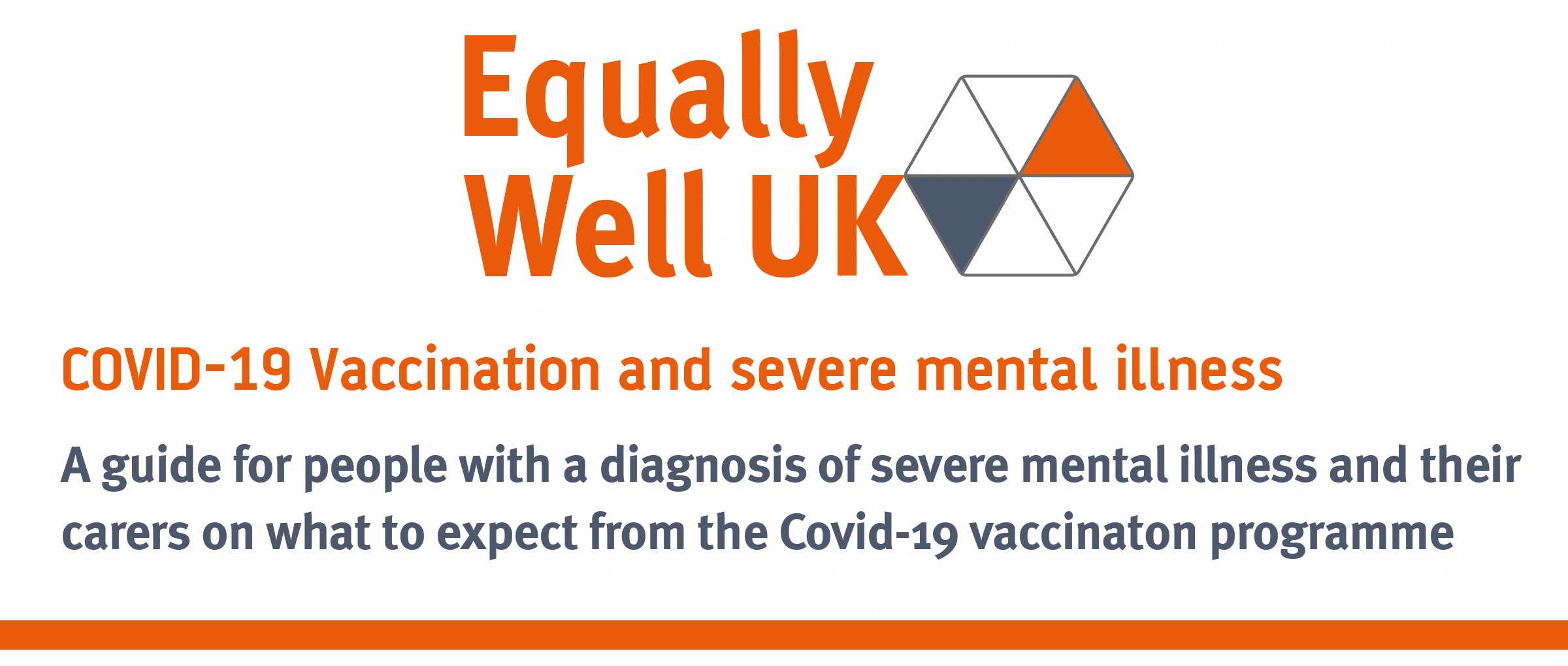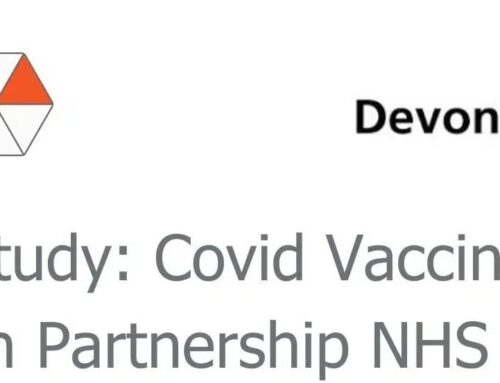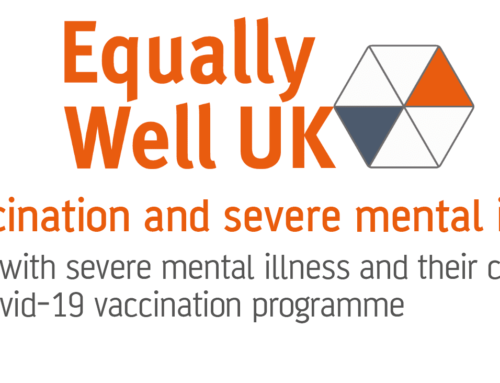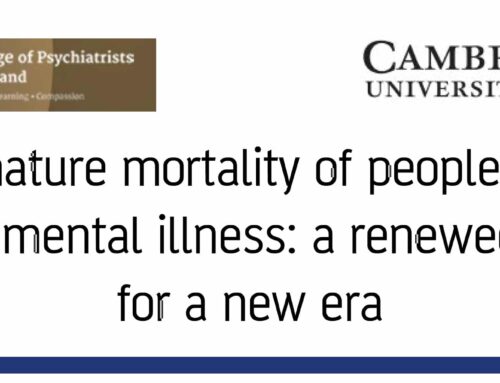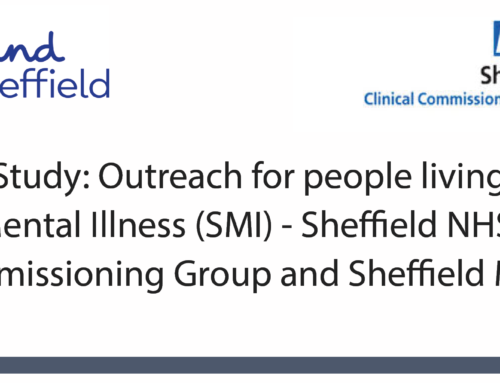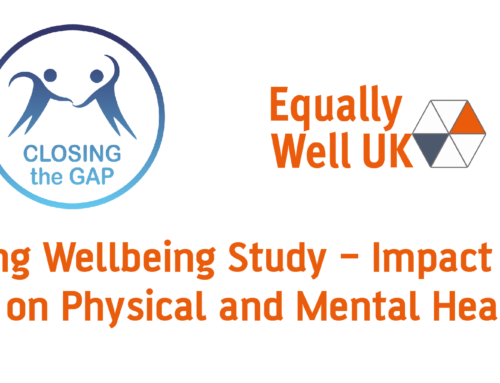Project Description
If you’re over 16 and living with a severe mental illness in England, you should now be eligible for a free COVID-19 vaccination.
This brief resource offers key information for people with severe mental illness and carers on:
- The vaccine roll-out programme
- Who is eligible to receive it
- What to expect on the day of your vaccine
- Reasonable adjustments you can ask for
- After the vaccine
- Signposting to further information
Additional information included in the resource:
The NHS has produced guides in a range of languages; you can find them here.
NHS blog: If you or a loved one you care for have a Severe Mental Illness (SMI), you are eligible for a free NHS COVID-19 vaccination now. Click here to read it.
NHS England and Improvement emailed primary care staff about the Covid Vaccine for people with a severe mental illness as well as sharing helpful resources: Click here to read it.
To find out more about the vaccination please visit the NHS website by clicking here.
We worked with PHE on a series of videos to share experiences on the Covid-19 vaccine that includes tips for GPs and those living with a severe mental illness from Kevin James, Chair of the Equally Well Expert by Experience Group, Prof Wendy Burn chair of the Equally Well Clinical Group and Dr Emma Tiffin, GP working for NHS England and NHS Improvement and with Centre for Mental Health. Click on their names to view the individual videos or here to find the series.
Rethink Mental Illness has a Covid-19 Vaccination page which can be viewed here, as well as a briefing summarising the findings from their Covid-19 vaccination survey for people with severe mental illness and their carers here.
Mind’s Covid-19 Vaccination page which can be viewed here.
A guide for people with severe mental illness and their carers on what to expect from the Covid-19 vaccination programme can be downloaded by clicking here.
For those that aren’t able to download the resource:
The COVID-19 vaccine is safe and effective. It is being offered to priority groups first, before being offered to all adults in the UK whether they are in a priority group or not. Anyone aged over 70 should already have had or been offered their first vaccine dose. Working age people (aged 16-64) with severe mental illness are included in Priority Group 6, which began on 15 February 2021 and is now in operation at the same time as everyone aged 65-69. Group 6 also includes people with some long-term physical illnesses and those with learning disabilities.
You should receive a letter, text or phone call from your GP with the details on next steps when the vaccine is available in your area. National guidance defines severe mental illness as including people “with schizophrenia or bipolar disorder, or any mental illness that causes severe functional impairment”.
If you are unsure if you are going to be eligible for a vaccination at this stage, please speak to your GP surgery or your health care worker to check.
If you are currently a hospital inpatient, you should be offered your vaccination there.
What to expect
- When it is your turn to get a vaccination, you will receive a letter from your local vaccination service with details of
how to book. - The Coronavirus vaccine is free of charge to you. The NHS will not charge you for a vaccination and will not ask you
for your bank details. - You will need to receive two doses of the vaccine approximately 12 weeks apart.
- The letter will share details on how to book both vaccinations either online or by phone.
- Your carer is able to book on your behalf if you need them to. You will receive a booking reference number which you will need to take with you on the day, along with the letter you received.
- Your carer can attend your appointment with you if needed and may be able to get the vaccine at the same time.
- All vaccination centres are COVID-19 safe and cleaned regularly. People will be socially distanced and you will need
to wear a mask, unless you are exempt. - The appointment should take around 30-45 minutes in total. Once you arrive at the centre there may be queues. If
you need to wait in a quiet space or require any additional support, please let a member of staff know. - You might be given a form to fill in on arrival asking some basic questions like your date of birth, contact details and NHS number. Your NHS number can be found on any medical records you hold or prescriptions.
- The person providing the vaccination will also ask you a few questions and talk through what
to expect. - The vaccine is given as an injection into your upper arm. If you have a phobia or are feeling
anxious about this, let a member of staff know so that they can support you. - After you get the vaccine you may be invited to sit down for about 15 minutes before going home.
Reasonable adjustments
If you need any reasonable adjustments to make it possible for you to have your vaccination, please ask for them when
you are contacted to make your appointment. Examples where this might be necessary include:
- A longer appointment time or one later in the day;
- Somewhere quiet to sit while you wait for your appointment;
- Asking if a carer/friend/your peer support worker could accompany you to your appointment;
- If you are housebound and not able to travel to a place that is providing vaccinations;
- If you need a sign-language service.
After the vaccination
- Some people may have mild discomfort after getting the vaccine. This might include soreness in the arm, tiredness or
aches. These don’t usually last for very long. - The first vaccine dose takes about two to three weeks to take effect. People who have received the vaccine need to
continue to practise social distancing and comply with all the current regulations. - It’s important that you also get your second vaccination so that you are fully protected. You should be told when you
go for your first vaccine what will happen about getting your second one.
Additional information
- None of the approved vaccines contains any animal product or egg. This means they are safe for people who are vegetarian or vegan, including people who do not
have animal products on religious grounds. - The NHS has produced guides in a range of languages; you can find them here.
- To find out more about the vaccination please visit the NHS website by clicking here.
- Rethink Mental Illness has a Covid-19 vaccination page which can be viewed here, as well as a briefing summarising
the findings from their Covid-19 vaccination survey for people with severe mental illness and their carers here.

